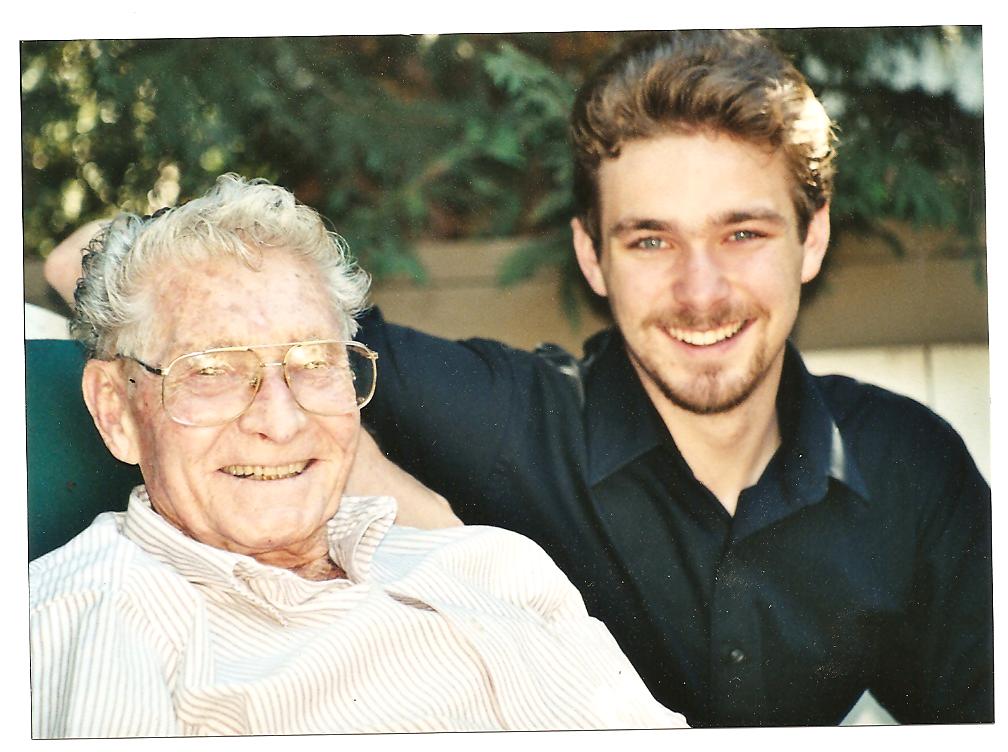It’s been a little while since I’ve both been feeling introspective and inspired to write at the same time, so I’m pleased to have this opportunity to put my thoughts down and explore a feeling which is almost perpetually on my shoulder—imposter syndrome.
Recently I posted that I was helping two young streamers develop and implement a business plan to hopefully advance their budding online careers. I’ve been talking a lot to them about goals, plans of actions, and how to measure their progress. Most of their followers are in their mid-teens so to an extent I’m providing a mature voice of experience and some measure of authority when it comes to establishing, running, and growing a business endeavor, while also trying to be an active member of their community without dominating the conversation or spoiling the culture they’re trying to foster.
In a moment of self-doubt tonight as the lights turned low and the world outside grew quiet, I wondered why they hadn’t asked me why I was helping them out, these two strangers from the internet. Here I am, someone living in the middle of corporate America with a million different things I could be spending my time and resources on, and I was setting aside a not small part of my energy to help foster success for their video game streaming business. I thought about the hypothetical question, and how I to rationally frame my thoughts on the matter. Thus, the genesis of this post and the larger conversation therein.
Those who can, do. Those who can’t, teach.
—George Bernard Shaw, 1903
I think we’re all familiar with the above quote, even if most don’t know its origins. Much has been said and debated about this famous phrase, and I think it’s important to explore the deeper meaning within the words. To me, this quote will eternally be exemplified by my grandfather, who was a master with wood and metal, plying both to his will with no doubt that what he planned in his mind, his hands would faithfully reproduce. I doubt anyone could rightfully question his drive to put his designs into execution or ability to do so.
However, my grandfather was not a good teacher of his craft. Unable or unwilling to wait for others to catch up, if someone fell behind his breakneck pace he was far more likely to take the project over himself rather than offer pointers, tips, or lessons. He could explain the basics of safety around the myriad of tools and their proper application, but couldn’t explain the ability or process to translate idea into form and function. Even while recovering from a traumatic double-bypass surgery he was drawing up plans and pushing himself to create, such was his drive.
I contrast the image of my grandfather, bent over a lathe with a cigarette loose in his lips, with that of my high school woodshop teacher. The latter may not have had the same command over the base materials that my grandfather did, but much of his passion was centered around passing on his joy of the craft and encouraging others to explore their own ability to shape and mold wood to suit their designs. Was he half the woodworker that my grandfather was? Perhaps. Was he more than twice the teacher when it came to the tools and implements of woodworking? Absolutely.
After a decade each in the computer industry a good friend and I decided to form our own IT consulting business. We were competent, hard-working engineers with a wealth of experience under our belts. What we quickly learned however was that working on a business required a very different skillset from working in a business. We had to manage finances, personnel, sales, inventory, processes, and all of the other “invisible” elements that go into making a successful company. Looking back, at different times I relate myself in those years more to my grandfather, or alternatively more toward my woodshop teacher. Some things we excelled at and with others we fought tooth and nail just to keep our heads above water.
In these quiet evenings when my wife has gone to bed and the escape of video games has served its purpose, my thoughts regularly turn to self-reflection, hence the title of this entire category of inward-focused posts. Unfortunately they also often turn to self-deprecation and fear. It has been said that depression can be described as fear of the past, while anxiety is fear of the future. I find a lot of value and truth in those definitions, regularly experiencing a great deal of both.
Bringing this back to Shaw’s quote, as I mulled on the subject of why I was helping these younger gents get their start, my mind instantly thought about all the ways I hadn’t “succeeded” in life and business, and it took a concerted effort to try and set those feelings aside. My fear was that I was helping them out of a vain hope that if they succeeded with my assistance that would in some way validate the trials and tribulations of my own struggles, coupled with the fear that I wasn’t good enough to help them or that my advice won’t be useful.
Enter the concept of imposter syndrome, a neigh-constant companion of mine through this life. For me, imposter syndrome is a gnawing fear that my successes are the result of dumb luck or others’ hard work, and that my failures are solely my own responsibility. That I’m not qualified or ready to handle the challenges of the day, whether they are at home, at work, in social groups, or anywhere else. Whether I’m running a role-playing gaming session, participating in a business meeting, or trying to support and care for my family, the spectre of “I’m not good enough” is always nipping at my heels, shading the edges of my perception. That those around me are deserving or demanding more or better than what I can provide, and it’s only a matter of time before they get tired of my feeble attempts to be adequate.
Sometimes I’m able to set aside those fears, those anxieties, and just enjoy the moment, but doing so isn’t an easy switch for me to flip—rather it’s like a dimmer switch that wants to be “off” and I have to apply constant pressure to see any glimmer of light. Some days I simply don’t have the energy to step into that arena, and I’ve come to accept that about myself. In thinking about this question, of what value I am or could offer to these young entrepreneurs, I’ve decided that the struggle to feel worthwhile and impactful is worth the effort. I genuinely want them to succeed, and at my core I think it would be fairly validating—for me, even—for them to do so.
When it comes down to it, am I possessed of my grandfather’s talent in the arena of business management? Absolutely not. I don’t have any illusions about appearing on any industry “best of” list or article. What I am however, and what I can be proud of, is a person who has years of experience in and exposure to a wide variety of business scenarios, responsibilities, and strategies, and I have a passion for helping others improve and grow.
So, why do I help them? In part because I can, in part because helping others is baked into who I am, and in part because I want to make sure I’m not the only one who learns from my own experiences. If I can use my own history to help others avoid pitfalls or reach important milestones, I feel it’s important for me to do so. I can often be found quipping “what good is knowledge if it isn’t shared?” and I really believe that’s true. To a large degree that’s even why I started this blog in the first place: to collect and present my ideas to the world, no matter how many or how few stop by for a look.
I think nearly 1,500 words about tonight’s mental rabbit hole is a good place to stop, and I can feel comfortable that I’ve covered what I feel is important. As always, thank you again for your time, your attention, and your understanding. The posts in this category are not easy to write and often—usually—deal with some very personal matters that usually aren’t brought up in the open in our society. Perhaps by my detailing what life is like within my own head, and the struggles and victories I see, it may encourage others to do the same.
Like I said, sharing the benefit of my experiences.
Header image from Pixabay.com, a fantastic resource for royalty-free stock photos
Footer image of Richard B. Carl and I, circa 2001

















